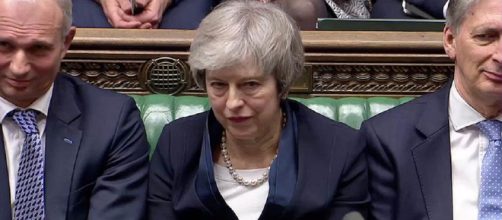British Prime Minister Theresa May suffered the most painful defeat in her political career, which made the future of Brexit even more uncertain. The House of Commons rejected her plan for withdraw from the EU on the evening of January 15. 432 people voted against, 202 voted for.
According to a report by the The New York Times, after the results were announced, opposition leader Jeremy Corbyn said that on Wednesday he would put forward a vote of no confidence in the Theresa May' government. The Prime Minister, meanwhile, should develop a new version of the agreement by Monday and present it to the legislators.
Against the background of these events, Brussels, formerly adamant and insisting on the approval of the current transaction, hinted at the possibility of a second round of negotiations.
All day January 15, people crowded in front of the Palace of Westminster. Each of them came to defend their opinion on the issue of the country's withdrawal from the EU. “We already have the best deal,” said the posters in the hands of some. Others put up the signs “Stop Brexit”, and yet others, “Leave the EU”.
In the meantime, there were many hours of debate, during which Theresa May once again tried to convince the members of the House of Commons that a better deal with Brussels could not be concluded. In the end, she agreed the "house had spoken" and the government would listen.
Why Jeffrey Cox Supports the Prime Minister
Conservative Attorney General of the United Kingdom Jeffrey Cox tried to support the Prime Minister. He warned lawmakers against voting against the deal since its failure could lead to the fact that "thousands of contracts, transactions, administrative and legal procedures in the EU and in our country will be immersed in legal uncertainty."
These arguments did not, however, affect parliamentarians. 432 voted against the deal, 202 - in favor. This is the loudest failure of a bill introduced by the government in the last hundred years.
A month after the postponement of the vote, the Prime Minister’s Cabinet worked out a plan of action in case the deal failed.
For this, Ms. May even reduced the New Year holidays for her ministers, prompting them to work on January 2, instead of the seventh. Now, after the failure of the transaction, the government will have to present the results of this work.
Whats British media consider about Brexit
The British media consider new negotiations with Brussels as another option. Their position seems to have been shaken due to protracted negotiations. If earlier European leaders claimed that the option approved in the fall was the only possible option, then on Tuesday, German Foreign Minister Heiko Maas admitted the possibility of new negotiations with London. The BBC said that at the same time, he made a reservation that even in the case of repeated negotiations, the agreement is likely to "remain as it was...If there was a better solution, it would have already been proposed.”


